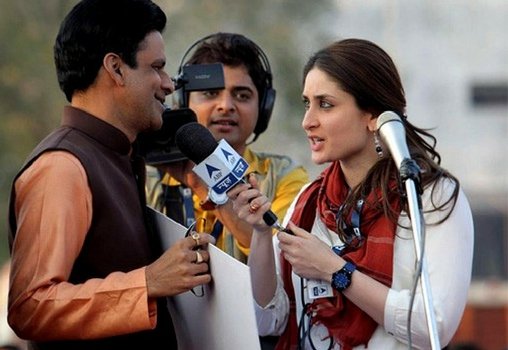Ducking the clichés of opting for conventional career options like medicine and law, some people decide to enter the ‘tunnel’ of creative and professional courses. They decide to endure the journey through the tunnel, waiting to uncover the amazement and experience the exclusivity of choosing professional courses. I use this analogy, and the word ‘tunnel’, not to highlight their alleged inferiority, compared to other streams, but figuratively to depict the unexplored, mysterious and unknown road that not many people traverse on, but is full of opportunities.
Leaving my science background after qualifying for the competitive exams and being just one step away from studying in a good MBBS college, I decided to take a firm (and filmy) decision of pursuing the career of journalism and mass communication, with the aim of exploring my writing skills and becoming a hardcore journalist.
Just like every other course, the reality and practicality beat our preconceived notions. While my idea of the course was limited to being in front of the camera and reading news, I realised how faulty my notion was, after attending college. I made friends in different colleges who, willingly or due to compulsion, ended up in similar courses facing the same problem of misplaced notions. The complete picture wasn’t that perfect. We learnt how this branch of applied humanities had a plethora of options and numerous areas of specialisations, with various avenues to explore and take recourse to. Journalists work round the clock, there’s no stopping- that’s what we had gotten ourselves into.
“Mic mil jata hai toh kuch bhi bolte hain aaj kal ke reporters” (once reporters get hold of the mic, they say whatever comes to them), is what I hear the elderly talk about in waiting rooms, or while travelling in public transport. And, I feel there’s a lot that goes unacknowledged and unnoticed. There’s not a single student in this stream who does not have the fire, passion and vigour to bring about change and to write the right. Fighting hierarchy, exposure to reality during internships and seeing the ‘system’ from up close is what acts as a deal breaker and, eventually, drowns the enthusiasm at some point.
Journalism, as a career choice, hasn’t been a go-to for many in the past, but over time, it has become a profession chosen out of love. Also, with time many colleges have started offering it. But, in today’s scenario of paid media and the general public condemnation of present-day media tactics, being a student in the same field, is exhausting yet adventurous.
There is a certain code of ethics, principles, laws and precedents set by our Constitution, which all of us are taught to abide by. Unfortunately, in the contemporary scenario, its applicability is only on paper, and not in action. The simplest practices of not revealing the victims’, survivors’ and/or abusers’ names are not paid heed to; and, since news channels present the news extravagantly, it interests the general public and feeds their curiosity, thereby giving leeway to such unethical display by news channels.
“A journalist is expected to deliver unbiased truth to the public to educate them, keeping their personal opinions aside.” This is the definition we write in our theory papers, while we see the biggest and the most influential news channels defying this statement every day, and picking sides for parties in power. The most recent series of stings conducted by Cobrapost is the biggest example to back my case. It is becoming increasingly difficult to differentiate between the entertainment industry and the news industry.
The media is regarded as the fourth pillar of democracy. As budding journalists, we need to understand the amount of responsibility our profession carries, the ethics it symbolises and the opportunity cost of the choices we make.
Amidst the agenda-setting tactics of the media, I see the general public, unaware of the news that’s being fed to them, suffer the most because misinformation is worse than no news. The credibility of a lot of sources of news is disputed and, hence, there’s a need for awareness of the information we consume. We must make it a habit to be careful of what we believe in.
Let us not be blinded by the opinions and choices of the reporters, and not base our opinions on the partial news we are served. Let us, the public, make that choice. There is a long way to go, but that is the ideal way. In a world, where the ideal is increasingly becoming utopian, let’s try to defy that norm by promising ourselves vigilance, impartiality and awareness.
